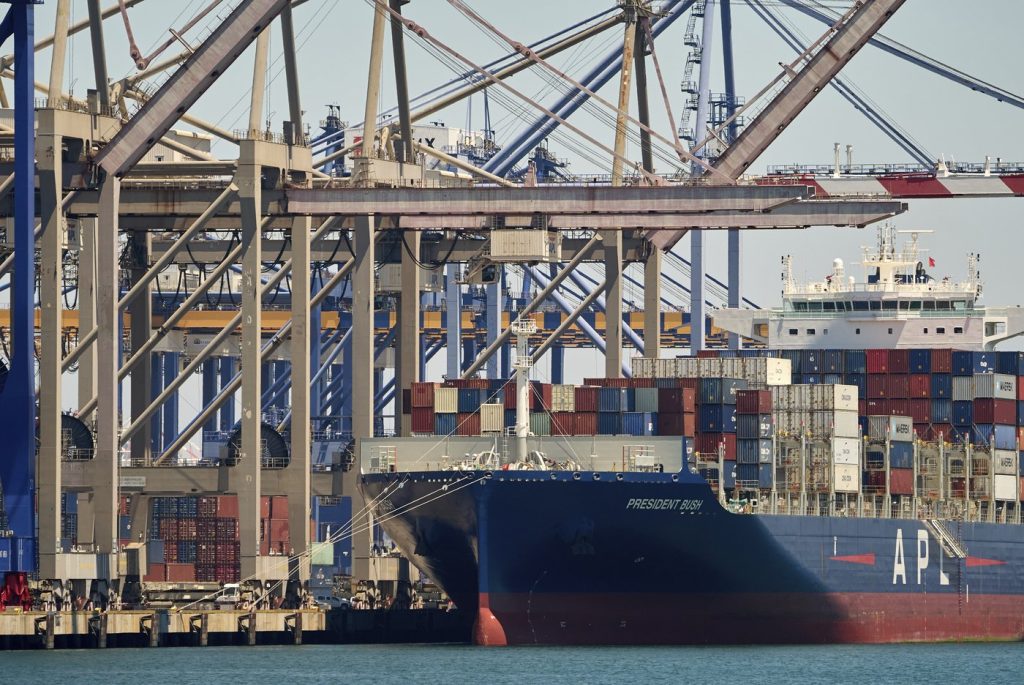In a significant shift in global trade dynamics, President Donald Trump's recent tariff impositions have led to a complex scenario of winners and losers. Starting from August 7, numerous countries, including poorer nations like Laos and Algeria to affluent trading partners such as Canada and Switzerland, are grappling with new and hefty tariffs on their exports to the United States. The implications of these tariffs are profound, raising questions about the long-term ramifications of Trump's protectionist policies.
The immediate beneficiaries appear to be those countries that conceded to Trump's demands, avoiding even harsher penalties. However, experts like Barry Appleton, co-director of the Center for International Law at New York Law School, argue that virtually all parties involved are suffering the consequences of this trade war. Trump has effectively dismantled the long-standing global economic order, which was based on mutually agreed-upon rules, replacing it with a framework where he exerts U.S. economic power to extract concessions from trading partners.
Alan Wolff, a former U.S. trade official, identified Trump himself as the principal winner in this scenario, noting that he successfully manipulated threats to bring countries to the negotiation table. The shift in trade policy dates back to "Liberation Day" on April 2, when Trump declared that a trade deficit constituted a national emergency, allowing him to impose steep tariffs on imports from several countries, bypassing Congress.
Initially, the abrupt announcement led to instability in financial markets, prompting Trump to suspend reciprocal tariffs temporarily to facilitate negotiations. Ultimately, some nations acquiesced to what were previously inconceivably high tariffs. For example, the United Kingdom agreed to a 10% tariff, significantly up from its prior rate of 1.3%, while the European Union and Japan accepted U.S. tariffs of 15%, higher than their previous low single-digit rates.
Further negotiations also led Pakistan, South Korea, Vietnam, Indonesia, and the Philippines to accept hefty tariff increases. Even those who managed to negotiate lower rates are still facing higher tariffs than before Trump's administration. For instance, Angola's tariff reduced from 32% to 15%, but it was below 1.5% in 2022, while Taiwan saw a drop from 32% to 20%, still significantly higher than pre-Trump levels.
The consequences of not complying with Trump's demands have been severe for nations like Brazil, Canada, and Switzerland, who faced steep tariff hikes. For example, Brazil was slapped with a 50% import tax due to perceived grievances against its political leadership, while Canada faced a 35% tariff partly as retaliation for its stance on recognizing a Palestinian state — an issue significant to Trump's support base. Conversely, Switzerland experienced a dramatic 39% import tax, showcasing the unpredictable nature of Trump's tariff policies.
In the U.S., the financial burden of these tariffs is felt most acutely by consumers, as companies pass on increased costs. Major brands like Walmart, Procter & Gamble, Ford, and Nike have already raised prices on various goods due to these tariffs. According to analyses, U.S. consumers and businesses bear the brunt of the costs, absorbing four-fifths of the increased expenses while overseas exporters have only absorbed a fraction.
Economic studies indicate that such tariffs have pushed the average U.S. tariff from 2.5% to 18.3%, the highest since 1934, potentially costing the average household approximately $2,400. Experts underscore that this consumption tax disproportionately impacts lower-income families, with essentials like electronics and appliances seeing price increases.
The unfolding dynamics of Trump's tariffs are still subject to change, especially with ongoing legal challenges questioning his authority under the 1977 law that justified these sweeping tariffs. The outcome of these challenges may reshape the current landscape and potentially alter the status of countries like Brazil from losers to winners. As it stands, the trade war initiated by Trump has undoubtedly produced a wave of complexities affecting nations worldwide, showcasing a profound and contentious shift in international trade relations.










